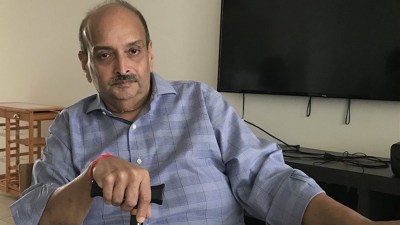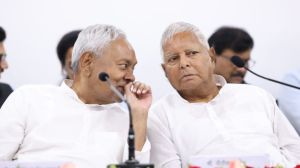Politicians’ sanctum, but its God lies buried under apathy
ULIHATU, Nov 16: In The foothills of Dumbari Buru, this tiny village which had rebelled against the British during 1895-99 has become a cen...

ULIHATU, Nov 16: In The foothills of Dumbari Buru, this tiny village which had rebelled against the British during 1895-99 has become a centre of pilgrimage for politicians.
Since early this decade, a horde of politicians cutting across party lines descend every year here on November 15 to celebrate the birth anniversary of the legendry tribal hero, Birsa Munda. The things were no different this time.
This village had been the battlefield of Birsa Munda who was born at Chalkad in 1875. His 15 feet statue which was unveiled by the former Bihar Chief Minister Laloo Prasad Yadav near Dumbari Buru hills on November 15, 1995, has been converted into a monument by the Central Government.
While the statue is still in good condition, the Rs 3.12 crore Birsa Munda Project which envisaged construction of a library, a residential school, a museum, roads, etc. is yet to take off. This project was sanctioned by the Union Welfare Ministry in 1995.
Ulihatu today languishes in the backwaters of governmental neglect and apathy. Even the hut where Birsa Munda lived lies in ruins. A century ago in 1895 it was a hub of movement against the British and its supporting bodies. The leader of this movement was 20 years-old tribal boy who “took sacred thread, put on sandal paste mark on forehead, read scriptures and emphasised on austerity”, reads the Ranchi District Gazetteer.
He asked his followers not to pay land rents and defy the authorities, informing them that the rule of the Raj of the Queen Victoria was over and that Munda Raj had commenced! On August 16, 1895, his followers assaulted a police constable at Chalkad and a week later on August 24 this tribal lad was jailed. On his release, Munda reorganised the movement. His supporters hacked to pieces two constables at Etkedih on January 6, 1899.
Next day, they attacked the Khunti police Station, burnt a part of its building, brutally killed a constable and set afire to a few stray houses of the local Banias. The Chotanagpur Commissioner, Forbes and the Ranchi Deputy Commissioner, Streatfield, with 150 men of the local infantry, stormed the Dumbari hill, killing 10 Mundas and wounding seven others. This broke the backbone of the movement. On February 3, Birsa was arrested and lodged in the Ranchi jail and placed on trial with his 48 followers. Birsa died of Cholera (some local historians however claim Birsa was poisoned to death) in Ranchi Jail on June 10, 1900, adds the Gazetteer.
For the villagers, a wide majority of whom are illiterate and eke out their living by cultivating small pieces of land, `Birsa Bhagwan‘ is still a revered figure although none of them has seen him alive.
Unlike many politicians who paid floral tributes to Birsa Munda by garlanding his statue today, the Congress Rajya Sabha MP, Gyanranjan, who has been leading a campaign — Jharkhand Mukti Yatra (JMY) — exhorting people, especially the villagers to contribute a handful of dhan, a rupee and a family member for realising a separate Jharkhand state in this region since July 1, addressed a public meeting and asked the tribals to give birth to yet another Birsa.
On November 15, 1991, this village was visited by a government official for the first time _ the then Khunti Sub-Divisional Officer, Alka Tiwari. She had come here to inaugurate for the first time since 1947 three development schemes — a check dam, a culvert and a 28 Km kutcha road.



- 01
- 02
- 03
- 04
- 05




























